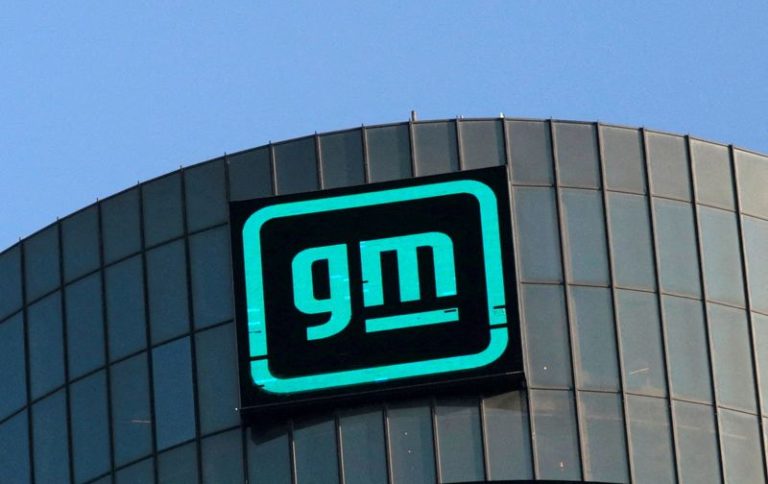By Nora Eckert
DETROIT (Reuters) -General Motors told shareholders on Wednesday that it would record two non-cash charges totaling more than $5 billion on its joint venture in China, one related to the restructuring of the operation and another reflecting its reduced value.
GM expects the charge for restructuring costs to be $2.6 to $2.9 billion and the charge for reduced joint-venture value to be $2.7 billion.
The U.S. automaker’s shares were down 2.7% before the bell.
GM partners with SAIC Motors in China to build Buick, Chevrolet and Cadillac vehicles.
The company’s board of directors determined that the non-cash charges were necessary “in light of the finalization of a new business forecast and certain restructuring actions” with the joint venture, according to a company filing.
GM has not disclosed details of the restructuring.
Most of the charges will be recorded in the company’s fourth-quarter earnings, reducing net income but not adjusted results, according to a company spokesperson.
CEO Mary Barra has been transforming GM’s operations in China as the former profit engine slipped to a loss in the last year. Barra told investors in October that they would see improvements from this effort by the end of the year, saying there would be “a significant reduction in dealer inventory and modest improvements in sales and share.”
The automaker lost about $350 million in the region in the first three quarters of this year.
In March, Reuters reported that SAIC aimed to cut thousands of jobs, including at its joint-venture with GM.
Barra previously warned that the China market was becoming untenable for many corporations.
“It’s a difficult market right now. And frankly, it’s unsustainable, because the amount of companies losing money there cannot continue indefinitely,” Barra said in July.
Stiff competition from domestic manufacturers in the country along with a price war has already had visible effects.
Sales at SAIC-GM slumped 59% in the first 11 months this year to 370,989 units while local new energy vehicle champion BYD (SZ:002594) sold more than 10 times of the cars in the same period. The GM joint venture peaked in 2018 with an annual sales of 2 million cars.
Volkswagen (ETR:VOWG_p), which lost its best-selling brand title in China to BYD in 2022, is doubling down on efforts to deepen ties with Chinese partners including Xpeng (NYSE:XPEV) Motor and SAIC for EV technologies to counter its flagging sales in its biggest market. The German automaker and SAIC agreed recently to extend their joint venture contract by a decade to 2040.
Japanese carmaker Nissan (OTC:NSANY) Motor is also cutting 9,000 jobs and significantly reducing its manufacturing capacity due to its slipping sales in China and the U.S.
In Detroit, GM’s cross-town rival Ford Motor (NYSE:F) is transforming its presence in China to become a vehicle export hub, though some analysts are urging Detroit’s automakers to cut their losses and exit the world’s largest auto market altogether.

